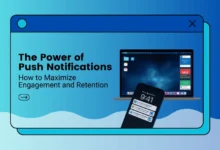What Does a Digital Marketer Do? 2024 Guide

We live in a time where our mobile screens have become the shopping windows. Therefore, the need for digital marketers is at an all-time high! While digital marketer may sound specific, it encompasses many responsibilities.
Digital marketing is no longer a niche industry. It has become integral to marketing activities across sectors to engage prospects, drive traffic, and generate quality leads.
In today’s fast-moving digital world, brands that want to succeed need marketers with digital expertise to make sure their products and services are visible online. Professional digital marketers require knowledge and qualifications beyond basic marketing strategies and creativity skills.
If you’re considering a top digital marketing career, a good place to begin is by understanding the skills required and what digital marketers do.
Who is a Digital Marketer?
As a marketing professional, a digital marketer adeptly utilizes online media to communicate, leveraging an understanding of the potential and best practices across major digital channels, often specializing in one or two subsets. Gain insight into the core responsibilities of a digital marketer, including the planning and execution of marketing campaigns and the analysis of reports to enhance and sustain a company’s online visibility, a proficiency honed through Drupal certification training. They strategically utilize various platforms to reach potential customers and effectively advertise a company’s products and services.
What defines a digital marketer is their prowess in planning and executing marketing campaigns, alongside their proficiency in analyzing reports to cultivate and uphold a company’s online presence.
Digital marketers must:
- use data to understand their audience
- use their customer knowledge to inform them about their service or product
- know their customer’s pain points
- increase traffic to the company’s website and generate new leads.
Understanding the Role of a Digital Marketer
A digital marketer leverages digital channels to promote products, services, or brands. Their role encompasses various digital media, including social media, search engines, email, content creation, and online advertising. Their primary goal is to use digital means to drive engagement, connect with target audiences, and achieve business objectives.
There are various roles within digital marketing. Some are highly specialized, and some are more generalist roles with multiple hats within the marketing mix. A digital marketer’s role is multifaceted and adaptable, crucial in driving online visibility, engagement, and business success.
In a generalist role, a digital marketer may be involved in social media management, optimization of websites, content creation, online advertising, and analyzing data. In a more specialized role, a digital marketer may be on a team where one’s role will focus solely on a specific area, such as search engine optimization (SEO), content marketing, social media marketing, or email marketing.
Qualifications of a Digital Marketer
Many digital marketers have a marketing, communication, or business degree. While a degree is sometimes preferred, landing a digital marketing position is optional.
Certifications like online digital marketing course by WsCube Tech, Google Analytics IQ, Hootsuite Social Marketing Certification, Google Ads, HubSpot Content Marketing, Youtube Certification, HubSpot Inbound Marketing Certification, the Facebook Blueprint, and other technical training are always beneficial to a digital marketing career.
What do Digital Marketers do?
A digital marketer drives brand awareness and lead generation through digital mediums. They spend their days creating, posting, or updating content, handling or monitoring social interactions and campaigns, or performing other jobs to bolster a company’s digital channels.
Depending on the industry, company, and seniority of a role, a day in the life of a digital marketer often includes:
- Managing social media marketing campaigns.
- Working on SEO or search engine marketing efforts.
- Overseeing email campaigns.
- Creating content for a company’s blog.
Typically, digital marketers have the following digital marketing responsibilities:
1. Social Media Marketing
Social media marketing is about reaching massive audiences using social media channels, which requires masterminding smart and relevant content campaigns. A Social Media Manager must also be mindful of their interactions with the public and opportunities to court prominent influencers.
2. Inbound Marketing
Inbound marketing describes anything that involves your company website’s ability to attract, engage, and convert end-users. Typically, this involves filling your site with exciting and valuable content—thought leadership articles and helpful blog posts that appeal to the audience you are trying to attract. These must be thoughtfully conceived and written to either rank highly for the most commonly searched queries or have a catchy hook that your audience will share through other channels.
3. Email Marketing
A digital marketer must know how to effectively engage with customers via email. Your email marketing efforts will be the straightforward way to cherish relationships with your existing clients, keep them updated, and boost their engagement with your brand. Also, a highly targeted and low-cost email marketing campaign is an effective way to reach new target customers or potential clients.
4. Content Marketing
Content marketing refers to creating high-quality content and developing an extensive content strategy. A content marketing specialist produces compelling content across various forms and channels, including articles, videos, podcasts, social media posts, etc.
5. Public Relations
Digital marketers are consistently involved in their company’s efforts to obtain coverage from other publications—setting the team members to write articles or think pieces for prominent blogs or online magazines or grant interviews to digital newspapers, podcasts, etc. This helps raise company awareness and establish its leadership as an expert.
6. Pay-per-click (PPC) Ads
Paying for ads ensures you get more potential customer eyeballs on your brand or website. PPC advertising demands a precisely thought-out strategy to ensure your ads are only placed where they will be most effective.
7. Search Engine Optimization (SEO)
SEO is the art of boosting a site’s ranking on search engines to increase traffic to that website. Digital marketers specialized in SEO research the words and phrases that might be used by users searching for information online. They reshape their content around those queries while considering things like content indexing and link structure at Elk HQ.
8. Project Leadership
With their involvement in multifaceted digital campaigns, digital marketers must know how to shepherd the projects through multiple phases across several channels with diverse deliverables involving the contributions of many people. This requires leadership skills and a high level of organization.
9. Marketing Analytics
Marketing analytics refers to the various tools used to conduct a post-mortem analysis of the success of your digital marketing efforts. These tools provide detailed breakdowns of where your traffic comes from and where it goes, which images or keywords are the most effective at attracting clicks, etc. Sorting through this mountain of information ensures that every digital marketing campaign learns from the shortcomings of the one before it to better target the correct audience moving forward.
10. UX and UI Design
UX means user experience, and UI means user interface are important components of all digital platforms. Many digital marketers work with computer programmers and web developers to make websites as easy to navigate and entertaining as possible. This helps companies engage with potential and existing customers to promote their brands.
11. Sales and Persuasion
A digital marketer’s job is to change people’s minds. Mastering the art of selling is the most significant advantage! But this isn’t limited to the hard sell; persuasion is just as important when slowly constructing a solid brand image over time or even trying to bring your colleagues on board for a new campaign idea.
12. Strategic Planning
Here, a digital marketer lays out a multi-phase plan to be deployed over weeks or months. Designing effective marketing strategies requires intense planning, a forward-looking attitude, and an eye for emerging trends. Successful digital marketers have an insatiable curiosity about how things work and change—both within their industry and globally. Staying abreast of these trends calls for perpetual learning.
Tools Digital Marketers Use
Whether you are managing customer relationships, optimizing websites, or uncovering new digital marketing opportunities, digital marketers use many different tools.
Here’s a list of common tools that digital marketers often use:
| Social Media Marketing Tools |
|
| Email Marketing Tools |
|
| Customer Management Platforms |
|
| Search Engine Optimization and Website Analytics |
|
| Conversion Optimization Tools |
|
| Landing Page and Lead Capture Tools |
|
| Graphic Creation Tools |
|
| Digital Advertising |
|
Essential Skills to Become a Digital Marketer
Now it’s time to understand the necessary skills that make a digital marketer:
- Analytics skills to create efficient data analysis strategies.
- Solid command of keyword research and knowledge of its usage in the content.
- Customer engagement skills to spot the target audience and the correct approach to address them.
- Sound hold over the language and excellent written and communication skills for high-quality content creation.
- Good knowledge of search engine tools, such as SEMrush, Google Keyword Planner, etc., content marketer tools, such as Grammarly, MS Word, Excel, etc., and social media tools, such as Facebook, Hootsuite, LinkedIn, Twitter, etc.
Career Progression for Digital Marketers
From entry-level to the C-suite, you can find different digital marketing roles and progress through various areas of digital marketing. It will depend on how far you want to advance and the roles you enjoy doing.
Here is a breakdown of different roles within the various levels of digital marketing jobs.
1. Entry-Level Positions
- Job Titles: Digital Marketing Assistant, Social Media Coordinator, Content Coordinator.
- Roles: Entry-level digital marketers often start in specialized roles, assisting with tasks like social media management, content creation, or email marketing. They gain hands-on experience and familiarity with various digital marketing channels.
2. Specialized Roles
- Job Titles: SEO Specialist, Paid Media Coordinator, Email Marketing Specialist.
- Roles: After gaining experience, individuals may move into specialized roles focusing on specific areas of digital marketing. This could involve managing SEO strategies, handling paid advertising campaigns, or becoming an expert in email marketing.
3. Mid-Level Positions
- Job Titles: Digital Marketing Specialist, Social Media Manager, Content Strategist.
- Roles: Mid-level digital marketers take on more strategic responsibilities, overseeing campaigns, developing comprehensive strategies, and managing teams. They may be responsible for analyzing data, optimizing performance, and contributing to broader marketing goals.
4. Managerial Roles
- Job Titles: Digital Marketing Manager, Marketing Manager.
- Roles: As digital marketing managers, individuals lead teams and are responsible for overall campaign planning, execution, and performance. They collaborate with other departments, set marketing objectives, and ensure the organization’s goals are aligned.
5. Director/Head of Digital Marketing
- Job Titles: Director of Digital Marketing, Head of Digital Marketing.
- Roles: Professionals oversee an organization’s digital marketing function at this level. They play a strategic role in decision-making, budget allocation, and implementing high-level marketing initiatives. Leadership and strategic vision become critical components of the role.
6. Chief Marketing Officer (CMO)
- Job Title: Chief Marketing Officer.
- Role: Some digital marketers may progress to the CMO role, where they lead the entire marketing department, encompassing both digital and traditional marketing. CMOs contribute to the overall business strategy and shape the brand’s image.
How to Become a Digital Marketer?
To begin your digital marketing career, you must learn to reach audiences online. This means familiarizing yourself with the available mediums and understanding how to use each one.
1. Build Your Foundation
You don’t require a marketing degree to become a digital marketer but must learn a few hard skills. The quickest and most efficient route is through an intensive and best digital marketing course.
2. Grow Your Skills
The more skills you have, the easier it is to get hired. During your foundational coursework, consider which digital marketing skills you enjoy most. Then, start looking for opportunities to fine-tune those skills.
3. Create a Portfolio
Employers hiring digital marketers often ask for a portfolio. Don’t be intimidated by this if you have yet to be paid for your digital marketing work. Entry-level candidates frequently present student or personal projects. Build a portfolio website with a user-friendly platform to show your best work.
4. Apply for Entry Level or Complementary Jobs
Many digital marketers enter the industry as apprentices, learning from more experienced marketers and working their way up. Others go straight into a traditional entry-level job. Unlike apprenticeships, entry-level positions don’t include formal training and require that you be more independent. Consider what you want in the future and choose a position that will help you develop those skills.
5. Career Prospects of Digital Marketers
The web is surrounded by much digital information, with much space to expand. Especially post-pandemic, businesses’ dependency on digital mediums for most of their activities has grown to a level that is leading to an increased demand for digital marketers.
To survive cutthroat competition and gain a competitive edge, digital marketers must possess in-demand skills and have sound knowledge about ongoing marketing trends, innovative business development and promotion techniques, and more.
Conclusion
Digital marketing is no longer a “nice-to-have”; it’s essential to any business strategy. If we talk about the digital marketer’s roles and responsibilities or skills and qualifications, they play a crucial role in the success of any business in today’s digital landscape. From developing and implementing marketing strategies, creating and managing social media presence, conducting market research, analyzing data, and optimizing marketing efforts, to collaborating with other departments and external partners – digital marketers wear many hats.








